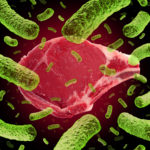By Bonnie Jenkins
Everyone loves a nut, especially around the holidays. And why not? Nuts are rich in flavor and texture, making them a satisfying snack. Okay, so the calories can add up fast. But if you can keep your nibbling under control, nuts are great!
People often avoid nuts because they think they’re fattening, but I just read a study from Harvard that suggests otherwise. Among more than 51,000 women taking part in the Nurses Health Study, those who ate nuts at least twice a week had a lower risk of obesity. In fact, the researchers noted that “incorporating nuts into [the] diet does not lead to greater weight gain and may help weight control.”
Other research shows that nut eaters are actually thinner and better able to stick to a diet than people who nix nuts, perhaps because nuts help curb appetite. And, in another Harvard study, noshing on a handful of nuts daily aided the resolve of dieters to stick with their low-calorie eating plan by helping cut between-meal cravings.
Nuts are a reminder that not all fats are evil. It’s true that nuts are loaded with fat, accounting for as much as 95 percent of their calories. The difference is that the fat and calories in nuts are accompanied by protein, the B vitamins, magnesium, calcium, copper, zinc, selenium, phosphorus and potassium. Plus, the fat in nuts is mostly unsaturated, which lowers both total and low-density lipoprotein (LDL or “bad”) cholesterol. Some of that fat is monounsaturated, which has the additional advantage of not lowering high-density lipoprotein (HDL or “good”) cholesterol. Walnuts are also unique in providing a source of the omega-3 fat alpha-linolenic acid.
In a recent randomized crossover study from Loma Linda University in California, researchers found that a walnut-rich diet significantly lowered both total and LDL (bad) cholesterol levels. But walnuts aren’t the only nut to help the heart:
- Almonds, macadamia nuts and pistachios have also been linked to fewer heart attacks in several large studies.
- In one study of 86,000 women, those who ate five or more ounces of nuts per week had 35 percent fewer heart attacks than women who rarely or never ate nuts.
- An earlier study of 34,000 Seventh Day Adventists found half the risk of heart disease in frequent nut eaters. Even those who ate nuts once a week had 25 percent less risk than those who didn’t eat nuts at all.
Along with the nutrients I’ve already mentioned, nuts’ heart benefits can be credited to powerful antioxidants, arginine (the precursor to artery-protective nitric oxide) and phytochemicals, including flavonoids, phenols, sterols, saponins and ellagic acid. Nuts also provide a decent amount of fiber, which helps shuttle cholesterol out of the body.
Other compounds in nuts, like selenium, quercetin and campferol, have anti-cancer properties. Two studies have suggested that nuts may lower prostate cancer risk. Another study shows that eating nuts may lower the risk of colorectal cancer.
Are You Suffering From...
- Love handles and a pot belly
- Romance that isn't what it used to
- Forgetfulness and inattention
- Low (or no) strength and endurance
- A sex drive that's shifted into neutral...or worse
If so...you may have Mature Male Burnout. Click here to discover more about this unique condition and what you can do about it.
Just make sure to choose nuts that haven’t been processed to death. Opt for raw nuts when possible or dry roasted. It’s also smart to choose salt-free or low sodium nuts. Some nuts to avoid are those that are fried in unhealthy oils and loaded with salt, high sodium flavorings or sugar. Once you’ve found nuts you like, eat them plain or use them to top salads, cereals or yogurt. Just make sure you stick to a handful—about one ounce—a day.
One final note: Anyone with an allergy to nuts should steer clear. But if a nut allergy isn’t an issue, consider going nuts over nuts. I can’t think of a tastier way to stay healthy.
References:
Bes-Rastrollo M, et al. Prospective study of nut consumption, long-term weight change, and obesity risk in women. American Journal of Clinical Nutrition. 2009;89:1913-1919.
Fraser GE. Nut consumption, lipids, and risk of a coronary event. Clinical Cardiology. 1999;22(7 Suppl):III11-5.
Jenab M, et al. Association of nut and seed intake with colorectal cancer risk in the European Prospective Investigation into Cancer and Nutrition. Cancer Epidemiology, Biomarkers and Prevention. 2004;13:1595-1603.
Rajaram S, et al. Walnuts and fatty fish influence different serum lipid fractions in normal to mildly hyperlipidemic individuals: a randomized controlled study. American Journal of Clinical Nutrition. 2009;89:1657S-1663S





